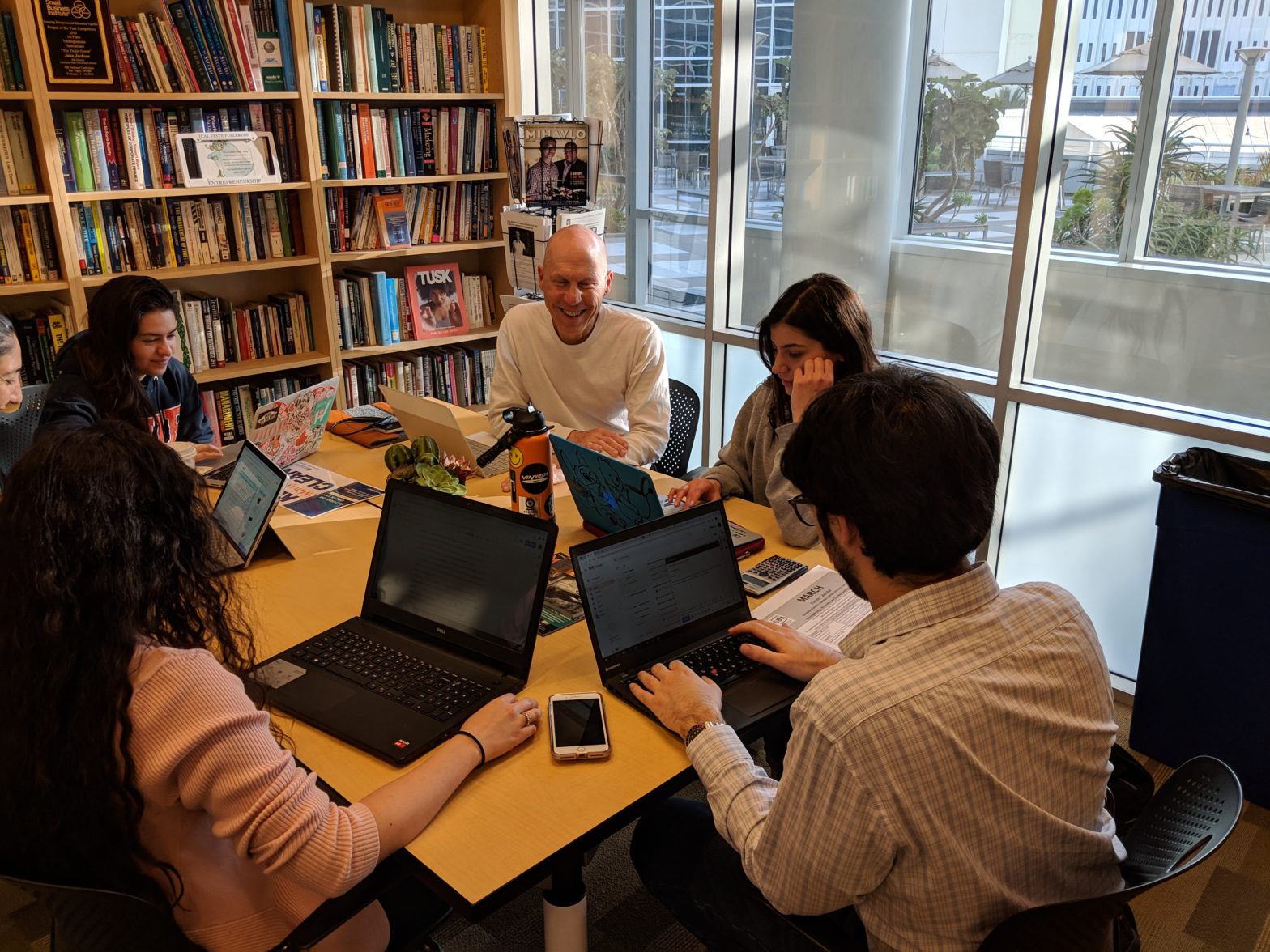Jim Cenname is a mentor in the CSUF Entrepreneurship program who has, for years at this point, mentored students in the classroom and helped them complete their CSUF Consulting reports (among other things). What follows, is a short autobiography, mentoring mission statement, and a little bit of advice from Jim that I think will certainly resonate with the rest of the CSUF Entrepreneurship community. Enjoy
My name is Jim Cenname, I am a founder.
After earning my university degrees, I spent my early career running several small manufacturing businesses, always owned by other people. Later, after struggling to get two real estate businesses off the ground, I founded a successful personal-service business with my wife, Ellen. We sold the business in 2015. That success, combined with a lifelong habit of saving, enabled us to retire in our mid-50s. Early retirement freed time and energy for me to give back to the community.
BTW, my friends know that Ellen and I met on match.com in 2003. Early adopters!
I’ve experienced success and failure in the business world, I want to help future entrepreneurs achieve the former and avoid the latter. CSUF’s entrepreneurial program is a great way to learn how to be a founder and do it the right way. An email from Travis Lindsay introduced me to mentoring at Mihaylo. Mentoring is one way I give back
I’ve mentored nine entrepreneurial student-teams through spring 2019. The team I currently work with is in Professor Miller’s ACCT 463 class. The students are consulting with a woman-owned clothing company at the beginning of the startup process. It can be messy at that stage. It is difficult to work with uncertainty so sometimes students procrastinate. My advice to students is to serve the client like your paycheck depends on it. Do something every week to move the project forward. Communicate with the client regularly. Go to every client meeting. Be on time. Woody Allen once said “80 percent of life is showing up.“

I advise aspiring founders to make sales their primary role. Founders may think their role is app development, clothing design, or providing a professional service. The path to success requires an entrepreneur to do a lot of selling. They will sell their idea to an investor. They will have to convince vendors to help them, especially when they have little money and no revenue. They will persuade customers of the need for their product. This requires human interaction, selling, convincing, persuading. Do not think ‘If I build it they will come’ (Field of Dreams). Someone on your team has to be very good with people, in front of people, on the phone with people, closing the sale, servicing the investor/vendor/customer, all the time.
Finally, as a founder achieves success with their business, they should strive to be a steward of entrepreneurship by paying it forward. Do for others what someone did for you so that others can realize the dream that you are living.
CSUF Entrepreneurship
We are dedicated to helping the next generation of entrepreneurs develop the skills that they need to compete locally and globally. The CSUF Entrepreneurship program does many things,
